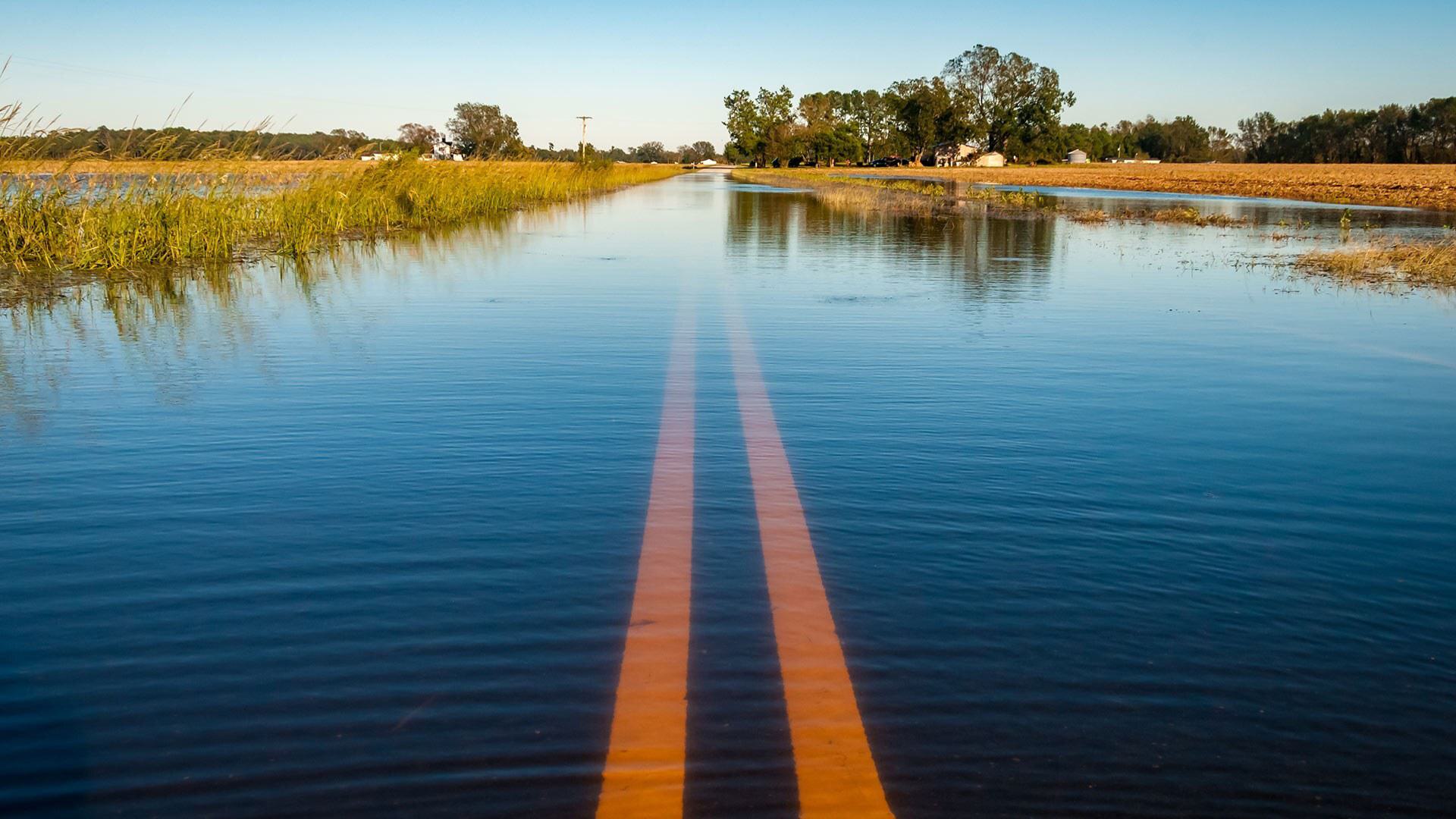As rising sea levels increasingly strain septic tank systems used by tens of thousands of Maryland households, a new $1.35 million grant from the U.S. Environmental Protection Agency (EPA) will fund a University of Maryland-led team’s investigation of ways to head off a looming sanitation crisis that could disproportionately harm the state’s Black residents.
The multi-institutional project headed by civil and environmental engineering Assistant Professor Allison Reilly includes several other UMD researchers in addition to partners at George Mason University and nonprofits focused on natural resources and environmental justice.
They’re focused on the more than 52,000 Maryland homes within 1,000 feet of tidally influenced water that rely on septic systems. Rising water levels create hydrostatic pressures that can cause septic tanks to fail by literally popping out of the ground, and the saturated soil causes effluent in septic drain fields to rise rather than sink into the ground for absorption and purification. This presents opportunities for human exposure to disease-causing pathogens and causes nutrients like nitrogen and phosphorus to seep into area waterways and potentially harm aquatic life, Reilly said.
Historical inequities in coastal communities’ access to public utilities makes the potential for widespread failure of septic systems an environmental justice issue as well as a threat to public health and ecosystems, said Reilly, the Pedro E. Wasmer Professor in Engineering.
“Historically, Black communities are more likely to rely on septic systems rather than on sewer systems, in part because of past racist perceptions about ability to pay and ‘deservedness’ for municipal sewer infrastructure,” she said. “Also troubling is the fact that federal or state resources are often made available when municipal sewer infrastructure breaks. But when a septic tank fails, the homeowner is on their own. And counties can levy fines or even order evictions if the homeowner fails to fix it quickly.”
Communities of color are also disproportionately exposed to sea-level rise and flooding because of a history of racist housing and land-use policies—which, along with sanitation inequality, constitutes a “one-two punch,” she said. “The compounded risk here is staggering.”
Possible long-term solutions include enabling states to use EPA water infrastructure funds to finance sewer system expansion or the construction of newer, less hazardous types of septic systems, or increasing use of “green banking” mechanisms that could provide low-interest loans to septic system users, Reilly said.
Other UMD team members include biofilms expert Birthe Kjellerup, associate professor of environmental engineering and the A. James Clark School of Engineering’s diversity, equity and inclusion committee chair; Rachel Goldstein, assistant professor in the School of Public Health’s Maryland Institute for Applied Environmental Health; and Andrew Lazur, a water quality specialist with the College of Agriculture and Natural Resources. George Mason coastal hydrologist Celso Ferreira and economists Yanjun “Penny” Liao and Margaret Walls from Resources for the Future, a D.C.-based research institution, round out the team.
Each will apply their specific domain of expertise to the interdisciplinary problem; Ferreira, for instance, will examine flooding patterns and how they are likely to evolve over time, while Goldstein will study the particular health risks posed by failing septic systems. "We know that raw sewage can contain disease-causing microorganisms," she said. "If a septic system fails, people could be exposed to these microorganisms and the infections that they cause."
Kjellerup and her students, meanwhile, are taking samples from drain fields in Anne Arundel County and Maryland’s Eastern Shore that are at risk of saltwater exposure.
The team is also partnering with Southeast Rural Community Assistance Project (SERCAP), which works with lower-income local homeowners to address problems with their homes, including repairing failing septic systems. Jean Holloway, Maryland and Delaware state manager, will represent SERCAP on the project.
“We need to better understand the risks, and then we need to develop practical, affordable solutions,” Reilly said.

